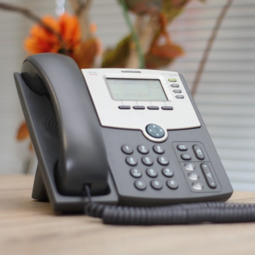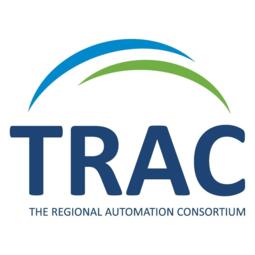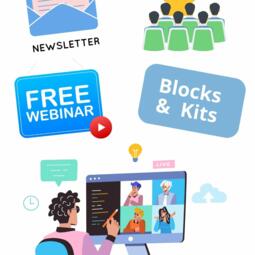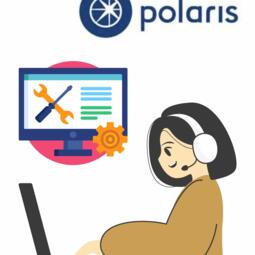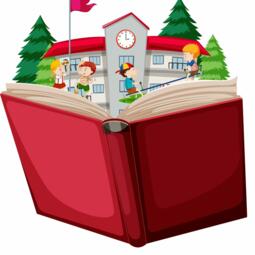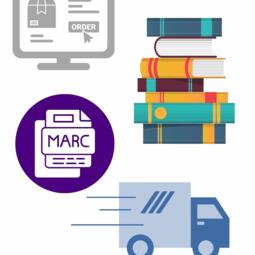PD for Library Staff
These professional development titles provide great insight for staff working in public libraries.
Beyond Reality
2019
The current price of virtual reality headsets may seem out of economic reach for most libraries, but the potential of "assisted reality" tools goes well beyond merely inviting patrons to strap on a pair of goggles. Ranging from enhanced training to using third-party apps to enrich digital collections, there is a kaleidoscope of library uses for augmented, virtual, or mixed reality. In this collection, Varnum and his hand-picked team of contributors share exciting, surprising, and inspiring case studies from a mix of institution types, spotlighting such topics as collaborative virtual reality for improved library instruction, education, and learning and teaching; 3D modeling using virtual reality; virtual reality as collaboration space, from gaming to teleconferencing; balancing access with security, and other privacy issues; future possibilities for augmented reality in public libraries; and augmented reality for museums and special collection libraries. A perfect introduction to the topic, this book will encourage libraries to look beyond their own reality and adapt the ideas inside.
Creating inclusive library environments : a planning guide for serving patrons with disabilities
Kowalsky, Michelle, author
2017
Although the ADA and the subsequent amendments act have been in effect for years, there are still some buildings where structure and interiors limit access. Libraries should be proactive in creating inclusive environments. Kowalsky and Woodruff highlight disability and access issues, and highlight best practices recommended for a barrier-free environment.
Cultivating Civility
Moniz, Richard
2020
Like other workplaces, libraries can sometimes be stressful, with library workers bearing the brunt of such problems as uncivil patrons, poor communication, inadequate leadership, and toxic behaviors by fellow employees. But there's hope. Following up their acclaimed examination of the dysfunctional library ("should be essential reading for library leaders" raves Journal of the Australian Library and Information Association), here the authors present a book of proactive solutions and guidance culled from their own research, including interviews with library administrators and staff. Sharing valuable insights that will stimulate thought and discussion towards the goal of a healthier and more harmonious workplace, this book addresses the subject from four viewpoints—individual, team, leader, and organization—focusing on solutions and practical steps in each area; shows how self-reflection and self-awareness can be key starting points for exploring workplace issues; offers numerous suggestions for wellness and self-care; provides tips for improving interpersonal communication and conversations in ways that prevent silos and span boundaries; sheds light on forming and sustaining cohesive library teams, then provides solutions for misaligned teams and dissenters; discusses why effectively conveying vision, role modeling, and demonstrating empathy are all crucial behaviors of library leaders; shares actions library leaders can take to engage employees in the change process; examines how organizational structures can either detract or contribute to a library's success; and details types of training that can be utilized to minimize dysfunction, including training for bias, empathy, conflict management, and diversity. Filled with beneficial advice on every page, this resource will help libraries be better workplaces for everyone.
The dysfunctional library : challenges and solutions to workplace relationships
Henry, Jo, author
2018
Engaging Babies in the Library
Knoll, Debra J.
2016
Public libraries across the nation continue to transform themselves into learning centers for infants, toddlers, and preschoolers. There are many resources available to help librarians create baby-friendly play spaces and enhanced storytimes, but until now there has been gap in the literature addressing the developmental needs and changing behaviors of babies and toddlers. Parents and caregivers can also present unique service challenges. Focusing squarely on the how of providing quality library service to babies and families, Knoll's new book provides sensible, sensitive advice on meeting their physical, emotional, intellectual, and social needs. Geared towards helping public libraries foster healthy growth and development for their littlest patrons, this book: explores multiple aspects in the developing life of a baby, discussing physical needs, emotional expressions, intellectual pursuits, and social development; highlights real-life examples from public libraries that relate to how these developmental processes present themselves while babies and families interact in the library; presents Baby Steps for each topical area, providing service tips and suggestions that can be easily or inexpensively put into practice; offers Big Steps, conversational points that invite librarians to think creatively about further investment, support, funding, and collaborative efforts; and includes carefully selected research findings and other information that can be used for planning, policymaking, and advocacy. With Knoll's guidance, children's librarians will be informed and inspired to rise to the challenge of providing quality service to babies, toddlers, and care providers.
Escape Rooms and Other Immersive Experiences in the Library
Kroski, Ellyssa
2018
By one count, there are more than 7,200 escape room environments in 1,445 cities in 105 countries. So why not in libraries? Sharpening participants' problem solving and collaboration skills by mashing up real-time adventure, immersive theater, gaming, and old-fashioned entertainment, they're a natural for libraries. And, as Kroski demonstrates in this fun guide, they're feasible for a range of audiences and library budgets. Whether you're already an escape room aficionado who's eager to replicate the experience at your own institution, or an intrigued novice looking for ways to enliven your programing, Kroski has got you covered. This book discusses the differences between escape rooms, which are highly structured, and immersive experiences, which are more casual; shows how these unique experiences can be used to teach information literacy skills, add unique youth programming, bring adults into the library, and instruct patrons about library resources in the form of puzzles and challenges; profiles several successful library projects, from large scale programs like New York Public Libraries' Find the Future: The Game to smaller ones like Search for Alexander Hamilton; offers dozens of programming ideas and examples that can be tailored to fit a variety of libraries and budgets; and provides information on game kits available for purchase, tips for partnering with local Escape Room businesses, and links to additional resources. With the assistance of Kroski's guide, libraries everywhere can offer their own take on these exciting forms of entertainment, engagement, and education.
Financial Management for Libraries
Sannwald, William W.
2018
Presenting financial management principles and best practices applicable to both public and academic libraries, this comprehensive text elucidates a broad array of issues crucial for those entering a managerial position. Both thorough and straightforward, Sannwald's treatment gives readers a solid grounding in the basics of accounting and finance, with an emphasis on applicability to library management and operations; ties budgets and strategic planning to library vision, mission, goals, and objectives; discusses the roles of stakeholders such as boards, governmental/municipal bodies, the university, and the community; looks at a variety of funding sources, from tax revenue to gifts and donations, and presents sound strategies for including them when projecting income and expenses; articulates and discusses the pros and cons of various budget strategies; includes sample budgets and forms that can be customized as needed; offers expert guidance on modifying budgets for windfalls and shortfalls; explains operating ratios, fiscal benchmarking, and metrics, demonstrating how to use these to effectively create and manage a budget and assess the fiscal health of the library; and advises on how to effectively prepare and present a budget and annual financial statements to a library's governing agency. Ideal for course use, this book will also serve as a ready reference for practitioners.
Fundamentals of collection development and management
Johnson, Peggy, 1948- author.
2018
"Johnson has revised and freshened this resource to ensure its timeliness and continued excellence. Consideration is given to traditional management topics, cooperative collection development and management, licenses, negotiation, and other purchasing andbudgeting topics, and the ways that changes in information delivery and access technologies continue to reshape the discipline" -- Provided by publisher.
Get your community moving : physical literacy programs for all ages
Carson, Jenn, author
2018
Movement-based programs bring new people into libraries, help promote community health, and stimulate literacy for children and adults alike. This is a guidebook for serving library patrons of all ages, both mind and the body together. It is essential reading for any programming librarian, administrator, or community coordinator.
The good, the great, and the unfriendly : a librarian's guide to working with friends groups
Reed, Sally Gardner, 1953-, author
2017
Helping patrons find their roots : a genealogy handbook for librarians
Schultz, Janice Lindgren, author.
2018
Intellectual Freedom Stories from a Shifting Landscape
2020
Intellectual freedom is a complex concept that democracies and free societies around the world define in different ways but always strive to uphold. And ALA has long recognized the crucial role that libraries play in protecting this right. But what does it mean in practice? How do library workers handle the ethical conundrums that often accompany the commitment to defending it? Rather than merely laying out abstract policies and best practices, this important new collection gathers real-world stories of intellectual freedom in action to illuminate the difficulties, triumphs, and occasional setbacks of advocating for free and equal access to information for all people in a shifting landscape. Offering insight to LIS students and current practitioners on how we can advance the profession of librarianship while fighting censorship and other challenges, these personal narratives explore such formidable situations as presenting drag queen story times in rural America; a Black Lives Matter "die-in" at the undergraduate library of the University of Wisconsin-Madison; combating censorship at a prison library; hosting a moderated talk about threats to modern democracy that included a neo-Nazi spokesman; a provocative exhibition that triggered intimidating phone calls, emails, and a threat to burn down an art library; calls to eliminate non-Indigenous children's literature from the collection of a tribal college library; and preserving patrons' right to privacy in the face of an FBI subpoena. These stories provide a rich platform for debate and introspection by sharing real-world examples that library staff, administrators, board members, and students can consider and discuss.
Libraries and the Substance Abuse Crisis
Grove, Cindy
2020
The opioid epidemic, and other behavioral health issues such as alcohol and drug abuse, directly impact every community across the nation; and, by extension, public libraries' daily work. Because libraries are not only trusted guardians of information but also vital community centers, people struggling with addictive behaviors as well as their family members and friends often turn to the library for help. But many library workers feel overwhelmed, finding themselves unprepared for serving these patrons in an effective and empathetic way. This book encourages readers to turn their fears and uncertainty into strengths and empowerment, offering to-the-point guidance on welcoming people with substance use disorders and their loved ones through policy, materials, outreach, collaboration, programs, and services. Written by a frontline librarian whose personal experiences inform the book, this resource explores the library's role in the fight against addiction and how to become part of the solution by combating stigma; provides background on understanding how substance abuse and related behaviors affect different age groups and populations; explains how to be proactive regarding library safety and security by carefully crafting library policies and effectively communicating them to staff; offers real world guidance on training library staff, including pointers on recognizing observable signs of drug abuse and responding appropriately and safely to uncomfortable or potentially dangerous situations; discusses safeguards such as a needle disposal unit, defibrillator, and Naloxone; gives tips on marketing, outreach, and programming, from putting together displays of materials and resources to partnering with local organizations; and recommends useful websites, documentaries, and additional resources for further learning. By making their own contributions to changing the way people struggling with substance abuse are treated in society, libraries can demonstrate that resilience can transcend crisis.
Libraries that Learn
2019
Sharing organizational knowledge supports onboarding, coaching, mentoring, and the day-to-day smooth functioning of the workplace. So why are the procedures, policies, and best practices for your organization often so hard to find? Although the term "knowledge management" might conjure up images of a bureaucratic labyrinth, essentially it means getting the right information to the right people at the right time. A lot of that information is embedded in work practices or may be siloed where it can't easily be shared; managing it successfully hinges on effective communication with every person on your team. This book surveys approaches to knowledge management (KM) that address hierarchical power structures and internal competition to get measurable results. With insights drawn from six case studies at academic and special libraries, in this book you'll find guidance on such topics as demystifying KM by reframing the concept to reflect organizational needs; the six elements of an actionable knowledge audit; how to harvest insights from staff at all levels of the organization; ten characteristics that define effective communities of practice; enabling KM through platforms like WordPress, Google Drive, and Dropbox or by adapting library tools like LibAnswers or ArchiveSpace; fostering knowledge sharing among liaison librarians; how interim administrators can develop a KM plan; sharing tacit knowledge with storytelling; and methods for securing knowledge before employee departure. Your library already contains organizational knowledge—both in your employees and in your institution; this book will lead you towards guiding, fostering, and organizing that knowledge for improved organizational fitness.
Promoting Individual and Community Health at the Library
Flaherty, Mary Grace
2018
Though today's consumers have unprecedented access to health information, its quality and veracity varies widely. Public libraries can play an important role in supporting library users in their health information seeking efforts. In this book Flaherty shows how to guide library users to high quality health information by relying on up to date, authoritative sources. She also demonstrates why taking the initiative to offer health promotion programming can be a valuable form of community outreach, serving community needs while increasing visibility. Library directors, programming staff, reference librarians, and health educators will all benefit from this book's patron-centered stance, which features a historic overview of the consumer health movement and how it intersects with public libraries; guidance on finding and evaluating the best print, electronic, and app-based health information sources, with advice on keeping up to date; an in-depth look at collaborative efforts to provide and sponsor simple health-related activities in public libraries, spotlighting programs in action at libraries across the county; instructions on creating, planning, preparing, marketing, and evaluating a public library health program; discussions of important issues surrounding health information provision efforts, including patron privacy and liability concerns; and guidelines for public libraries' role in public health efforts, including disaster preparedness. Armed with this book's expert advice and plentiful examples of successful initiatives, public libraries will feel empowered to make a difference in community members' health and well-being.
Supporting Trans People in Libraries
Krueger, Stephen
2019
Designed to provide practical information to library workers of all types, this book offers specific strategies for supporting trans people in their libraries. As trans people (including those on the nonbinary spectrum) start to feel safer expressing their identities in public, libraries are making an effort to show that they welcome people of all gender identities. Yet there are many potential barriers to actively supporting trans people, including lack of knowledge about the needs of the trans community and lack of funding or institutional support. This book, written entirely by trans library workers, is designed to dismantle some of these barriers. Supporting Trans People in Libraries is relevant for library workers of any background and position. People with little knowledge about trans identities can start with the opening introductory chapters, while those looking for guidance on a specific situation—such as adding all-gender restrooms, interacting respectfully with trans coworkers, deciding what information to require on library card applications, writing inclusive job postings, making collection development decisions, and more—can jump to a particular chapter. For each topic, there are sections on easy fixes, best practices, and example language. Readers can easily adapt the information to benefit their libraries and communities in concrete ways. Provides introductory information on trans people, community needs, and preferred language Offers specific best practices for creating inclusive library environments for trans patrons and employees Includes resources and suggestions for long-term support of trans people in libraries Suggests inclusive language for various scenarios (e.g., sharing pronouns and writing job descriptions)
Sustainable Thinking
Aldrich, Rebekkah Smith
2018
How we talk about what we do is just as important as what we do, and in communicating the value of libraries to our society what our profession needs is confidence, determination, and the will to succeed. In this inspiring and pragmatic new book, Aldrich shows that the first step towards a sustainable library is sustainable thinking: a determined yet realistic attitude that will help your library spot opportunities for institutional advancement, advocate for and safeguard operating funds, and generate intense loyalty from the communities you serve. Nothing less than a compass to help chart the course of your library's future, this book begins with a situation report that examines the myriad societal disruptions that are impacting libraries and discusses why resiliency is a key component of sustainability; defines how sustainable thinking encompasses not just the environment but economics and social equity as well; provides strategies for supporting the core values of librarianship by following the Three Es of Sustainable Libraries; lays out a host of tactics to build intense loyalty to your library from the inside out, including ways to foster an organizational culture of sustainable thinking through policy changes and purposeful leadership; guides you in communicating effectively with the community, thereby ensuring that your advocacy connects with the maximum number of residents, opinion leaders, and decision makers; demonstrates how to use construction and renovation projects as unique opportunities for positive changes; and offers worksheets, discussion questions, checklists, additional resources, and many other useful tools that will help you put sustainable thinking into action. This book will show you how to harness sustainable thinking to move forward with confidence into the unknown.
Teaching life skills at the library : programs and activities on money management, career development, and more
Buckley, Kimberli S., 1965- author.
2022
"This book provides easy-to-implement activities that readers can use to develop life skills classes at their library."-- Provided by publisher.
Transforming summer programs at your library : outreach and outcomes in action
Cole, Natalie, 1971-, author
2018
Transforming Young Adult Services
Bernier, Anthony
2019
How should LIS envision its young adult users? Now showcasing an even more rigorous debate about the theory and practice of YA librarianship than its first edition, this "provocative presentation of diverse viewpoints by leaders in the field" (Catholic Library World) has been updated and expanded to incorporate recent advances in critical youth studies. A comprehensive, evidence-based treatment that offers LIS instructors, students, and practitioners a valuable tool for aligning YA services to more fully reflect our diverse populations of young people, this collection delves deeply into such topics as the historical roots for current theories and practice; how intellectual freedom, storytelling, library collections, and other service topics can connect with the library's notion and vision of young adults; diverse YA identities, including critical race theory; competing perspectives on young adults' rights in libraries; envisaging YA librarianship from a teen-centered perspective; youth identities and the school library; and moving beyond coaching to copilot with young adults. The broad range of topics and arguments in this volume invites and challenges readers to see critical theory as a means to effect true transformations in young adult services.


